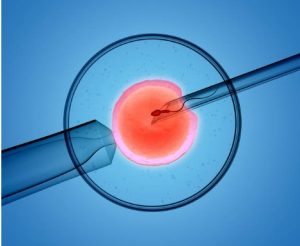- Home
- Editorial
- News
- Practice Guidelines
- Anesthesiology Guidelines
- Cancer Guidelines
- Cardiac Sciences Guidelines
- Critical Care Guidelines
- Dentistry Guidelines
- Dermatology Guidelines
- Diabetes and Endo Guidelines
- Diagnostics Guidelines
- ENT Guidelines
- Featured Practice Guidelines
- Gastroenterology Guidelines
- Geriatrics Guidelines
- Medicine Guidelines
- Nephrology Guidelines
- Neurosciences Guidelines
- Obs and Gynae Guidelines
- Ophthalmology Guidelines
- Orthopaedics Guidelines
- Paediatrics Guidelines
- Psychiatry Guidelines
- Pulmonology Guidelines
- Radiology Guidelines
- Surgery Guidelines
- Urology Guidelines
Fathering children by assisted reproduction may increase risk of prostate cancer: BMJ

Men who became fathers through assisted reproduction techniques seem to be at higher risk for prostate cancer and early-onset prostate cancer compared with men achieving fatherhood naturally, concludes a study published by The BMJ today. The findings suggest that these men may benefit from early screening and long term monitoring for prostate cancer.
Prostate cancer and male infertility are both very common disorders, affecting approximately 10% and 8%, respectively, of all men in Western societies. As prostate cancer and many forms of infertility are male sex hormone-related, a possible link between them has been investigated previously. But study weaknesses have so far prevented researchers from drawing any firm conclusions.
So a team of researchers based in Sweden set out to compare the risk and severity of prostate cancer between men achieving fatherhood for the first time by assisted reproduction and men conceiving naturally.
Their findings are based on data from national registers for over one million children born alive in Sweden during 1994-2014 to the same number of fathers.
Fathers were grouped according to fertility status by mode of conception: 20,618 (1.7%) by in vitro fertilisation (IVF), 14,882 (1.3%) by sperm injection (ICSI), and 1,145,990 (97%) by natural conception.
The average age at childbirth was 37 years for both IVF and ICSI treated fathers, and 32 years for fathers who conceived naturally. Cancer registries were used to identify new cases of prostate cancer up to 20 years after childbirth.
After adjusting for factors that could have affected the results, such as age and education level, the researchers found that men becoming fathers through IVF and ICSI had a significantly higher risk of prostate cancer than men who fathered children naturally.
Among men achieving fatherhood naturally, 3,244 (0.28%) were diagnosed as having prostate cancer, compared with 77 (0.37%) in the IVF group and 63 (0.42%) in the ICSI group.
The risk of early-onset prostate cancer (diagnosed before age 55 years) was also particularly high for men fathering children through ICSI, a technology used for men with the most severe forms of infertility.
These increased risks remained after excluding men with a previous cancer diagnosis or who received testosterone replacement therapy.
This is an observational study, and as such, can't establish cause, and the authors point to some limitations. For example, they did not include infertile men who were unable to father children, and who may have a higher risk of prostate cancer than those who managed to become fathers.
What's more, with an average age of 45 years at end of follow-up, these results cannot quantify prostate cancer risk over a lifetime.
Nevertheless, they conclude: "Men who achieved fatherhood through assisted reproduction techniques, particularly through ICSI, are at high risk for early-onset prostate cancer and thus constitute a risk group in which testing and careful long term follow-up for prostate cancer may be beneficial."
How male infertility could be linked biologically to risk of prostate cancer is not yet clear, but abnormalities on the Y chromosome-linked to both infertility and prostate cancer, are a possibility, say researchers in a linked editorial.
However, screening is controversial owing to lack of survival benefit and the harms from overdiagnosis and overtreatment that can follow a positive screening test, they warn.
"In the absence of a plausible mechanism of action or proof of causation, justifying screening for prostate cancer in all infertile men is difficult," they write. "However, further research on the possible future complications of male infertility would be welcomed by patients and will help clinicians to counsel all infertile men about their future health."

Disclaimer: This site is primarily intended for healthcare professionals. Any content/information on this website does not replace the advice of medical and/or health professionals and should not be construed as medical/diagnostic advice/endorsement or prescription. Use of this site is subject to our terms of use, privacy policy, advertisement policy. © 2020 Minerva Medical Treatment Pvt Ltd